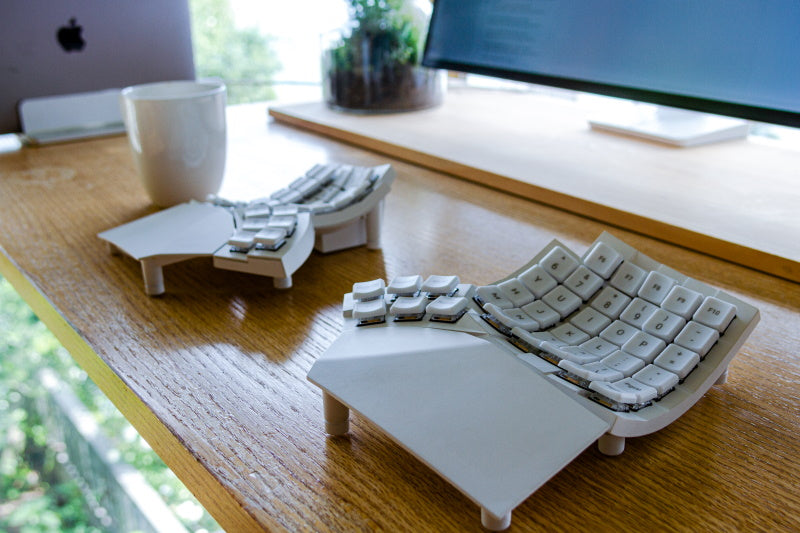In the beginning there was Jeff Bezos. He created Amazon in 1994 and became filthy rich in the decades that followed, reaching a net worth exceeding $241 billion in 2025.
Bezos has used a portion of his accumulated wealth on such things as The Washington Post newspaper (2013), a divorce (2019), and a Venice destination wedding for his second wife (2025), among other splurges.

I've got way too much cash, thinks Jeff Bezos. Hmmm, pay more tax? Pay staff more? Nah, let's just go into space
Yet Blue Origin, his privately held aerospace company, has been his most ambitious and costly endeavor outside of Amazon, one that has consumed increasingly large amounts of money since he founded it almost 25 years ago. Casual observers conflate Blue Origin with Amazon's Project Kuiper broadband satellite network and it's easy to see the confusion, since Bezos founded both. But while there are connective threads between the two, the companies march to very different beats and it remains unanswered if Blue Origin will have as great an impact on the world as Amazon.
Revenge of the space nerd
Bezos has been a devout space advocate for decades. As high school valedictorian, he told his graduating class he dreamed of the day when mankind would colonize space and leave Earth to be a big nature preserve, as reported by The Atlantic in 2019. His beliefs remained steadfast throughout his time at Princeton University, where he became president of the local Students for the Exploration and Development of Space (SEDS) chapter.
I went to college around the same time frame as Bezo and vividly remember the local SEDS chapter. They would talk about the construction of large O'Neill cylinders for the colonization of space, while the rest of us were trying to pass classes and figure out how to do something useful with the first IBM PCs in a time long before the internet became a mainstream concern about a decade later.
Rocket companies aren't cheap. Fortunately, Bezos, Amazon's founder and CEO until 2021, has a ton of Amazon stock and uses it to fund Blue Origin and his other interests. Unlike SpaceX, which continues to go to the private equity markets early and often, Blue Origin remains tightly held with Bezos as primary shareholder and funder.
Exactly how much of his cash has gone into the company is subject to considerable speculation. Back in 2017, Bezos said in an interview he would sell off $1 billion in stock per year to fund the company's activities.
Given Amazon's massive valuation and his personal net worth, Bezos has considerable resources to fund Blue Origin's many hardware projects. These include the New Shepard suborbital rocket operation out of West Texas, the New Glenn reusable rocket to put satellite constellations into orbit, the Blue Moon lunar lander program, and some more humble schemes to build a larger satellite bus/tug and a smaller commercial space station built in cooperation with other firms.
- SpaceX scores $5.9B lion's share of Space Force launch contracts
- Jeff Bezos can now taunt Elon Musk: I'm building a moon rover for NASA, when can Tesla do that?
- FAA confirms it's testing Starlink, maybe for tasks Elon says Verizon is doing badly
- Amazon's Kuiper secures license to take on Starlink in the UK
- Words alone won't get the stars and stripes to Mars
The biggest criticism of Blue Origin has been its lack of speed to put New Glenn on the pad so it can launch satellites for others. First announced in September 2016, the rocket didn't make its inaugural flight until January 2025, far later than its original expected 2020 launch date. While new launch vehicles often "move to the right" with various issues, New Glenn has had the speed of a tortoise compared to the hares at SpaceX.
Companies that planned to launch on New Glenn have had to turn to SpaceX and other launch providers. One of those companies is, ironically, Amazon.
Amazon's Project Kuiper – a for-profit world apart
SpaceX's Starlink Low Earth Orbit (LEO) satellite network has demonstrated the technology and market demand for turnkey, high-speed, low-latency broadband around the world in markets ranging from unconnected homes unreachable by other affordable means to mobile users on planes, trains, and automobiles, along with governmental and national security applications.
In 2019, Amazon created the Project Kuiper subsidiary and declared it would spend $10 billion to build the infrastructure to deploy and operate a constellation of 3,236 satellites, including a mass-market, low-cost flat panel phased-array antenna to connect millions of people and companies around to the network. As a publicly traded company, Amazon had to justify the expense of this project to the board and its shareholders and show that it could provide a return on investment.
In addition, as a public company, Amazon couldn't play favorites with its former CEO and current executive chairman. Activist shareholders see a down quarter, get worked up about perceived self-dealing, the stock price tanks and nobody is happy. It had to take a vendor-neutral stance, so Amazon ended up distributing launches among United Launch Alliance (ULA), Blue Origin, Europe's ArianeGroup, and yes, SpaceX. Since Blue Origin continues to move at an unhurried pace to get into a steady launch cadence, most of the initial Kuiper launches will be performed by ULA and SpaceX.
The major financial contrasts between Project Kuiper and SpaceX's Starlink are essentially threefold. First, Amazon's $10 billion commitment to Kuiper, while substantial, is nothing compared to the continued yearly capital investments into its datacenter resources. The company recently indicated it would spend on the order of $118 billion on capital expenditures this year, a large portion of which will go into building out tech infrastructure for AI demand. SpaceX is a different beast: Starlink is the monetary lifeline necessary to keep Elon Musk's space company in the short-term business of building bigger rockets and the longer-term one to colonize Mars.
Finally, Project Kuiper will play an interesting and significant role, providing worldwide connectivity for new consumer customers and a complementary one to its government and enterprise customers who need to be connected to cloud services anywhere in the world. Could Amazon Prime customers at a certain spending level get a free Kuiper dish and discounted broadband service? It's certainly possible.
But the important thing to keep in mind is that, while Bezos holds executive positions at both Amazon and Blue Origin, Amazon is a large, publicly traded company that can't simply throw money into its founder's whims. ®
.png)





